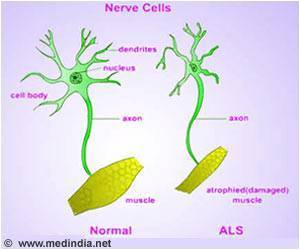-
Heart failure during pregnancy can be mistaken for common pregnancy symptoms - AI-enabled digital stethoscopes identified twice as many cases of heart
failure compared to traditional methods - AI tools were 12 times more effective at detecting severe heart failure
A world where a simple stethoscope could detect a life-threatening heart condition before it’s too late. This isn’t science fiction; it’s a reality brought closer by AI technology. Heart failure during pregnancy is a serious health risk that goes unnoticed due to common symptoms like fatigue and difficulty breathing (dyspnea) which are often misunderstood as pregnancy discomforts.
Advertisement
AI Stethoscopes Enhance Heart Failure Screening
A recent study conducted by the Mayo Clinic was presented at the European Society of Cardiology Congress. It showed that Artificial Intelligence (AI)-enabled digital stethoscopes helped doctors identify two times more cases of heart failure when compared to a control group receiving regular pregnancy care and screening. The study results were published in Nature Medicine (1✔ ✔Trusted Source
Artificial intelligence guided screening for cardiomyopathies in an obstetric population: a pragmatic randomized clinical trial
).
Nigerian women often have pregnancy-related heart failure, which has been common in the region and globally. The AI-enabled digital stethoscope detected heart pump weakness compared to traditional screening methods. The results were evaluated based on ejection fraction (weak heart pump) at a lower threshold of 45%. This cutoff identified a specific type of heart failure known as peripartum cardiomyopathy.
Advertisement
Why Early Detection of Peripartum Cardiomyopathy is Important
“Peripartum cardiomyopathy affects about 1 in 2,000 women in the U.S., and up to 1 in 700 African American women. It is important to identify this type of heart failure in pregnant women for their well-being,” says Demilade Adedinsewo, M.D., a cardiologist at Mayo Clinic and lead investigator of the study.
Peripartum cardiomyopathy can worsen during pregnancy or after childbirth if the mother’s heart becomes very weak. Though this condition can be taken care of when identified at earlier stages, it requires intensive care, a mechanical heart pump, or even a heart transplant in severe cases.
Advertisement
AI Tools Increase Accuracy of Heart Failure Detection
The open-label clinical trial involved nearly 1,200 participants in randomized and control groups. The participants were screened with the usual obstetric care and AI-enhanced tools. 12-lead AI-electrocardiogram (ECG) is an AI algorithm that was developed by the Mayo Clinic researchers to predict low ejection fraction. Eko Health improvised a new version of this algorithm for its point-of-care digital stethoscope, and it is U.S. Food and Drug Administration (FDA) approved to detect ejection fraction.
The researchers found that doctors who used digital stethoscopes and 12-lead ECG for screening were able to detect weak heart function with high accuracy. The AI tool identified double the number of ejection fractions (less than 50%) and was 12 times more likely to detect cases with an ejection fraction below 45% compared to traditional care.
The AI-supported tools were tested at three different levels of ejection fraction, which are used in the clinical diagnosis of heart failure in pregnant women.
- Ejection fraction less than 45% was used to diagnose peripartum cardiomyopathy.
- Ejection fraction less than 40% indicates heart failure with reduced ejection fraction, with strong evidence that specific medications can reduce symptoms and risk of death.
- Ejection fraction less than 30% indicates severe heart pump failure and needs intensive care with heart failure therapies, heart transplantation, or implantable defibrillator.
“We can improve detection of peripartum cardiomyopathy in Nigerian women. However, there are other important aspects to be addressed. The next steps involve analyzing the tool’s functionality and its acceptance among Nigerian healthcare providers, including doctors and nurses, and understanding its impact on patient care,” says Dr. Adedinsewo.
Reference:
- Artificial intelligence guided screening for cardiomyopathies in an obstetric population: a pragmatic randomized clinical trial – (https://www.nature.com/articles/s41591-024-03243-9)
Source-Medindia



